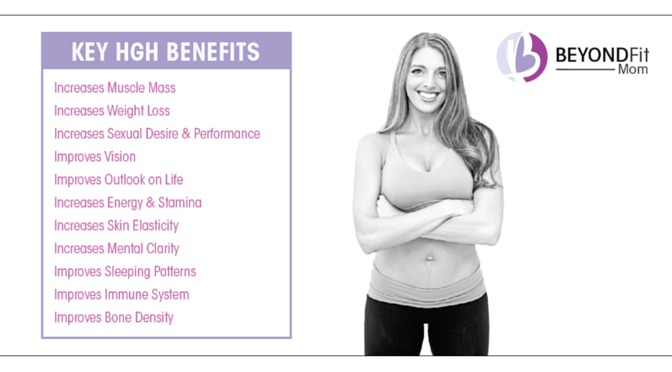Fix Your Fat Fighting Hormones Day 4: HGH
By Kate Horney
HGH is a fat burning hormone that is produced in the pituitary gland, and as the name suggests, is a hormone that stimulates muscle tissue growth.
The production of HGH (human growth hormone) slowly decreases as we begin to age. HGH fuels childhood growth and development and continues to help to maintain healthy tissues and organs. Scientific studies relate the loss of HGH to our aging metabolic slowdown and weight gain.
In terms of fitness and fat loss, HGH’s role in muscle growith is key. This is important because there is no better fat burner than our muscles!
HGH has the benefit of stimulating your body to burn fat (rather than store it), so with that plus the stimulation of muscle growth, the effect on fat loss is doubled.
Aside from the effects on fat loss, HGH has been shown to slow the progression of age-related degenerative diseases, as well as increase sex drive, help maintain mental acuity, and engender a general sense of well-being.
HGH also plays a role in:
- Strengthening your bones
- Improving Vision
- Increased Skin Elasticity
- Improved Sleeping Patterns
Improved Immunity - Decreasing fat accumulation
- Protecting your organs from the decline that occurs with age
- Promoting more rapid hair and nail growth
- Improving circulation
Low levels of HGH can result in:
- muscle loss
- fat gain
- low sex drive
- low energy levels
- a poor sense of well-being.
Some people in the non-natural bodybuilding community take forms of this hormone to boost muscle growth. HGH can be obtained only through a doctor’s prescription in the United States, but I much prefer the natural way of boosting this hormone. (Without all of the dangerous side effects)
Factors that help to stimulate HGH without supplementation include:
- Sleep– Adequate sleep (8 hours or more) is needed to optimizes production of HGH.
- Exercise– HGH is stimulated when your body engages in intense, short term exercise like sprinting and lifting weights. Implementing high intensity exercise like weight-training and HIIT can help lower cortisol over time, as well as increase HGH and promote fat-burning/muscle-building.
- Protein– Studies show that consuming a high-protein, low-carbohydrate diet may impact the production of HGH. The amino acids will help to boost HGH, while avoiding too many carbs will keep insulin levels low so that it cannot inhibit growth hormone from doing its work.
Check back everyday this week for the next post in this series!
